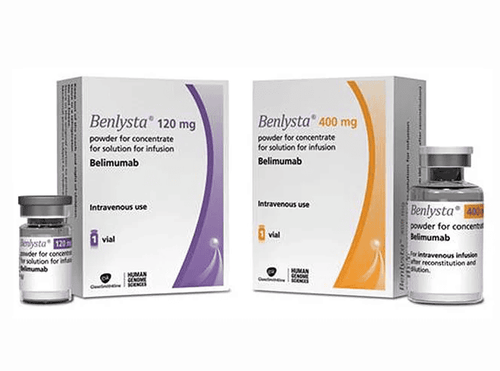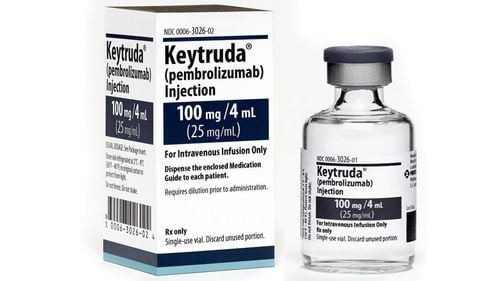This is an automatically translated article.
The article is professionally consulted by Master, Doctor Phan Ngoc Hai - Pediatrician - Neonatologist - Vinmec Danang International General HospitalWhat are micro-minerals? The role of micro-minerals in the body and why micro-mineral deficiency can cause many negative health effects, especially in children?
1. What are micro-minerals?
To maintain daily activities as well as strengthen the immune system to protect health, minerals play an essential and irreplaceable role. Minerals are loaded into the body mainly through daily eating or using functional foods and supplements to supplement minerals.
The main minerals need to provide the body include chloride, sodium, potassium, calcium, phosphorus, magnesium. However, these are only the minerals needed by the body, but for good health and comprehensive development, each person needs to load more micro-minerals.
Micro-minerals are essential and indispensable trace minerals in the human body. However, micro-minerals do not need as large as the above minerals, but only in a very small amount to participate in the body's operation.
The main micro-minerals can be mentioned as zinc, copper, iodine, iron, selenium, cobalt, flour, manganese, chromium...

Vi khoáng là những khoáng chất vi lượng cần thiết và không thể thiếu trong cơ thể con người
2. What role do micro-minerals play in health?
The following are the roles of micro-minerals for health you should know:
Zinc This is a micronutrient that participates in the structure and function of many different enzymes in the body. In addition, zinc plays a role in stimulating eating, helping children to increase absorption and comprehensively develop both physically and intellectually. Iodine is a micronutrient that plays a role in helping to synthesize hormones to help regulate and develop the central nervous system, develop the reproductive system, maintain energy for the body's activities... In addition, iodine is a micronutrient. Extremely important for the thyroid gland, participating in the creation of thyroid hormones T3 and T4, iodine also helps convert beta-carotene into vitamin A, which helps synthesize proteins in the body and absorb sugar in the small intestine.
Selenium Selenium affects all components of the immune system, is an important micronutrient that helps each person's immune system stay healthy against disease. Selenium is also involved in the metabolism of iodine, which is an important micronutrient in the production of thyroid hormone.
Cobalt This is a micronutrient with very little content in the human body and is accumulated in the liver. Cobalt is the main element of vitamin B12, has the role of anti-anemia, stimulates digestion, enhances memory, supports the functioning of the nervous system...
Flour This is a micronutrient that plays a role in development development of bones and teeth, affecting the regulation and metabolism of calcium and phosphorus.
Manganese This is a basic trace element of life, has an impact on cellular respiration, bone growth, glucose metabolism and affects brain activity. Manganese also participates in fatty acid synthesis, sex hormone production, affects thyroid metabolism...
Chromium Chromium plays a role in increasing the presence of insulin to help stabilize blood sugar, regulate blood sugar . The body's lack of chromium is at risk of reducing good cholesterol, increasing body fat, having high cardiovascular diseases, which has certain effects on each person's emotions.

Kẽm là một trong những vi khoáng vô cùng quan trọng với cơ thể
3. What are the consequences of a lack of micro-minerals?
Although micro-minerals only need a very small amount to operate daily activities, what happens if the body lacks micro-minerals for a long time? Let's find out the possible consequences of a lack of micro-minerals in the body:
Brain retardation: A lack of micro-minerals in the body, especially in the early stages of a child's development, can cause the same consequences as a child. slow to learn, not responsive, emotionally uncontrollable and often angry. Mental retardation due to micronutrient deficiency is difficult to recognize because the manifestation is not clear and when detected it is often late and misses the best time for treatment.
Malnutrition: This is the most recognizable manifestation in children lacking micro-minerals because many substances are directly involved in the child's digestive process. The deficiency of minerals in the body makes the digestive system of children work poorly, children anorexia and slow weight gain. Weakened Immune System: The micro-minerals in the body have a direct effect on the immune system, specifically the process of forming and perfecting the immune system. Without these minerals, the immune system will be weakened and unable to protect the body against disease.
4. How to supplement natural micro-minerals
In 2003, a report of the National Institute of Nutrition showed that Vietnamese children between the ages of 6 months and 12 years had severe micromineral deficiencies and were an alarming situation related to the nutritional health of children. young.
The necessary micro-minerals for the body are not produced on their own but need to be supplemented with daily food sources, so parents need to diversify their children's menus, meeting all 4 components of starch, starch, protein, fat, fiber. However, in each type of food, there are different levels of minerals, so parents need to regularly change the menu to help children be provided with the most nutrients.
Besides changing the menu, parents can use products that provide natural minerals for children.
Microminerals are minerals needed by the body, although only in very small amounts. The micro-minerals in the body cannot be produced on its own, but need to be supplemented through the diet, so each person needs to pay attention to their own and family's dietary menu to fully supplement nutrients and have a healthy body. strong.
Please regularly visit Vinmec.com website and update useful information to take care of your baby and family.














